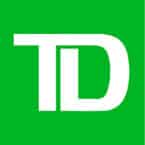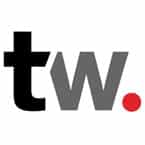Best Option Trading Platforms for 2022
Trading options can be utilized alongside your stock trading (or in isolation) to generate income (i.e. selling premium), hedge your risk (long put protection) or by trading volatility (short or long). It is important to note, option trading is without a doubt more complex than buying or selling stocks. Hence its important to get a solid understanding of options before trading them.
Now once you have a solid understand of how to trade options, its important to choose a broker for your option trading. Below we’ve compiled a list of option brokers, with our ratings of each one, alongside listing their pros and cons so you can find the best option broker for you.
Here they are below:
TD Ameritrade

Rating: 5 Stars
Fees: $0 per options trade, $0.65/contract
Account Minimum: $0
Pros: $0 stock/ETF commissions, a full featured trading platform for all experience levels (both traders/investors), multiple account types, solid trading/investing education & great customer support.
Cons: higher margin rates than other competitors, no crypto trading
Our Quick Take: Out of all the option brokers and trading platforms out there, the TD Ameritrade Think or Swim platform is one of our favorites and the one personally used by Chris Capre (Head of 2ndSkies trading & investing). The simplicity of the option chain, along with tools to help you find and analyze your option trades make this a 5 star in our book. It is our all-around best platform out there for beginner to seasoned option and stock traders, and is also great for active traders alongside long term investors. Overall, it’s the most balanced platform and brokerage out there that really does it all and thus gets our highest rating.
WeBull

Rating: 4.25 Stars
Fees: $0 option commissions, $0 stock fees
Account Minimum: $0
Pros: Excellent/Flexible mobile platform, solid web platform, cheaper margin rates and no account minimums.
Cons: Limited account types, still building its educational resources, some data feeds have monthly fees, and more for active traders.
Our Quick Take: For active traders looking to trade on mobile or web based applications, WeBull has one of the better and more flexible platforms out there (superior to Robinhood in our view). You can also trade a fair amount of crypto offerings (10), forex pairs (10) and loads of stocks. On a platform to platform basis, we find it stronger than Robinhood. For new to intermediate option traders, we find a solid platform, but seasoned pros may want a more sophisticated offering. Overall a solid options broker platform for active traders.
Robinhood

Rating: 4.15 Stars
Fees: $0 for options, stocks and ETF’s.
Account Minimum: $0
Pros: Easy to use mobile trading app, fractional shares, crypto offerings and solid education
Cons: No phone customer support (big negative IMO), mobile & web app only, and no IRA accounts.
Our Quick Take: Robinhood is designed to be a simple/easy to use mobile platform for completely new stock and option traders. While we applaud them for ushering in the $0 commissions era, and easy to use mobile platform, they have had many missteps along the way (Gamestop debacle, app outages, still no customer phone support, and gamification tools which can potentially make the app addictive). They do offer fractional shares (a positive in our view), but the mobile or web based app is a bit too simplistic that anyone with any decent trading or investing experience will feel the platform lacks solid tools, charting or features. For completely new stock and option traders, this is the easiest way to go. For anyone else, eventually you will feel the limitations of their platform, technology and customer support.
Tastyworks

Rating: 4 Stars
Fees: $0 for stocks, $1/option contract
Account Minimum: $0
Pros: Built by professional option traders, unique option trading features, solid educational offerings
Cons: Leans towards the active options trader vs long term investor, margin rates are not the best, and not for beginners
Our Quick Take: One of the best option trading platforms out there developed by a team of option traders that really understand the needs of option traders. Hence their technology for trading options is hands down some of the best. They are all about options. However…this is (in our view) not the best option broker or platform for beginners and more suited for active traders. Their pricing is unique wherein you are charged commissions in opening positions and have commissions capped at a per trade maximum. Their margin interest rates are ‘ok’, so not the cheapest, nor the most expensive, but long term investors may not find this platform or option broker their top option and their stock research is lacking. For seasoned option traders who want a platform all about options and trade decent size, this might be your platform.
Features we want in our best option brokers
Due to the complexity of options trading in comparison to stock trading, option traders generally require more tools and platform features from their option brokerages. For active option traders, they want better pricing, ease of execution and option screeners, while long term option traders generally are focused on simplicity and commissions.

Below is our list of features we want or look for in our decision process when examining option brokers:
The Platform: Ease of use, the option chain, analytics (in examining potential option traders) and option screeners are what we look for any platform. While more seasoned traders and investors may prefer TD Ameritrade’s Thinkorswim platform or Tastyworks, newer option traders and investors will want to consider the easier option brokers like WeBull and Robinhood.
The platform is a key piece of technology you will use, so make sure it has all the features you want and is easy to use.
Commissions & Fees: simply put, the fees and commissions you pay to take any trade take from your potential profits and add to your losses. Active traders have different needs vs long term investors so make sure you understand your option brokers commissions and fees when it comes to trading options.
Resources & Customer Support: How much educational content does your broker offer? That is an important question for understanding the broker platform and building your knowledge in trading options. A broker that offers more resources means less time you have to spend searching online for the answer, and that matters to us.
On top of this, whether your broker offers customer support or not, and how accessible it is also matters. Its your money parked with a broker, so naturally, you’re going to want answers and support from time to time. How much support and how accessible that support is matters to us, and we believe it should for you as well.
What are options?
Simply put, options are contracts between a buyer and a seller, and stock options give traders and investors the right to buy or sell stocks at a predetermined price (strike price) on or before a specific date in the future (expiration date). It’s important to note options give you the right, but not the obligation to buy or sell the stock, hence the word ‘options’ which gives you the option or flexibility to choose to or not.
It is important to understand there are some unique terms used in options trading you should get yourself familiar with. They are:
Call options: an option that gives you the right (but not the obligation) to buy a stock at a certain price on or before the expiration date.
Put options: an option that gives you the right (but not the obligation) to sell a stock at a certain price on or before the expiration date.
Strike price: the option price which gives you the right to buy or sell the stock.
Expiration date: the date at which the option contract between the buyer and the seller expires. Options must be ‘exercised’ on or before this date, or they expire worthless.
Premium: the cost of an option
Contracts: all options are traded as a contract whereby 1 option contract controls 100 shares of that stock.
Buying options: option buyers can buy calls or puts, or any combination of them. The option buyer pays the option premium.
Selling options: option sellers can sell calls or puts (or any combination of them). The option seller receives the option premium the option buyer pays.
To learn more about option trading, check out our options trading 101.

